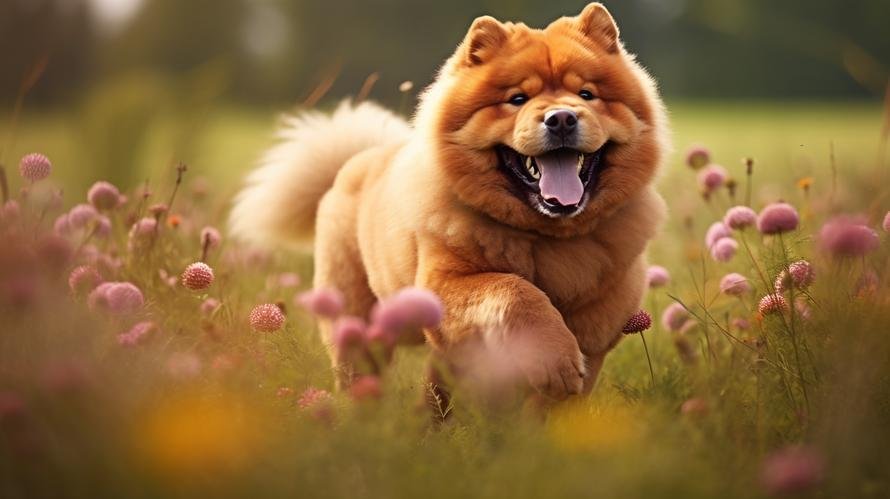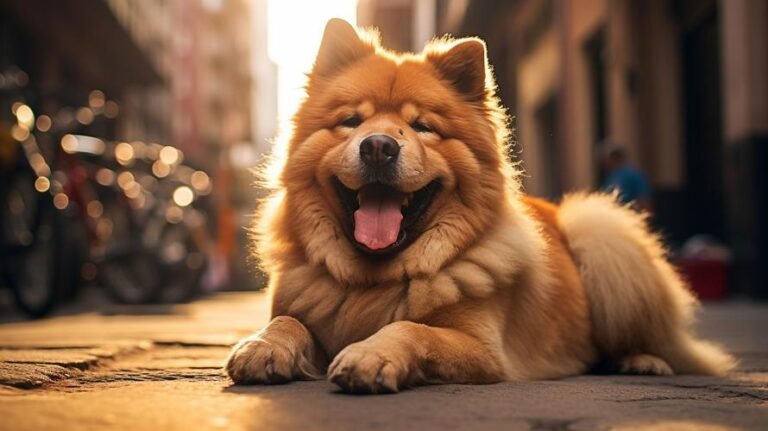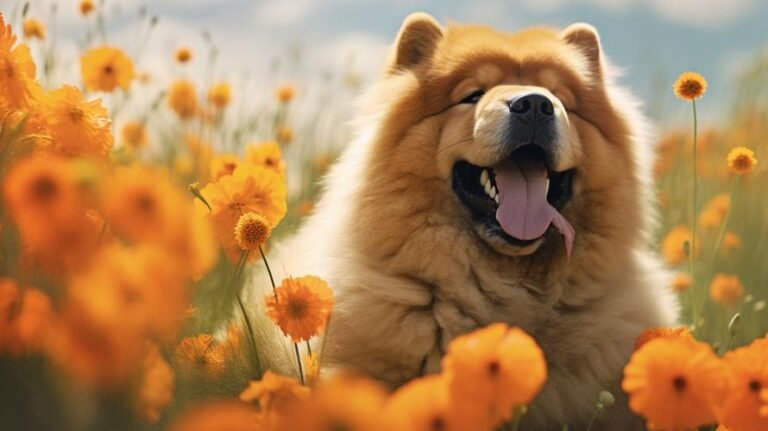Have you ever seen a bundle of fur with the noble silhouette of a lion? If you have, you may have stumbled across a Chow Chow. These proud and aloof creatures inspire admiration and fear with their majestic bearing. They often come under scrutiny for their perceived aggressive behavior. But is it fair to label Chow Chows as dangerous dogs, or is there more to these fluffy canines than meets the eye? Let’s dive into the mysterious world of Chow Chows.
Chow Chows are unique among dog breeds. They’re one of the few breeds with a distinctive blue-black tongue, a feature that sets them apart from the thousands of other dog breeds in the world. It’s like nature dabbed on a bit of blue paint to make them stand out in the crowd! But there’s more to these beautiful creatures than just a distinctive tongue color.
Hailing from China, the Chow Chow is among the world’s oldest breeds. It’s believed that they are the ancestral breed for Samoyeds, Keeshonds, Norwegian Elkhounds, and Pomeranians. The breed has a rich history, from being working dogs to companions of Chinese nobility, and has even found its way into the Western world home as a charming and loveable pet.
Often compared to a bear or lion due to their muscular build and fluffy collar, these dogs carry themselves with an air of dignified aloofness. This characteristic, though a part of their charm, is often mistaken for aggression. However, their seemingly standoffish demeanor is actually a reflection of their selective affection, reserved only for their close family or ‘pack’.
Chow Chows have a well-deserved reputation for loyalty, often to just one person in a household. This breed wouldn’t hesitate to protect their chosen companion. Does this protective trait make them dangerous? Not really. Think about it; wouldn’t you want a pet that loves you so much they’re ready to take a stand for you when necessary?
Understanding and perception of the ‘potentially dangerous’ label applied to Chow Chows mainly stem from their formidable personalities. With strangers, Chow Chows tend to show restraint rather than immediate friendliness displayed by other breeds. Early socialization is paramount for these dogs to prevent them from becoming overly suspicious or fearful of new situations, which can result in defensive aggression.
Here’s an eye-opener: Chow Chows are related to wolves. A study comparing the genetic similarities of different breeds revealed that the Chow Chow is one of the “basal” breeds, meaning they are genetically very close to wolves. This relationship doesn’t make Chow Chows any more dangerous than other breeds; rather, it underscores the need for understanding their primal instincts and integrating early socialization training.
Researchers and dog behaviorists stress two key factors that determine a dog’s disposition: their genetic makeup and their upbringing. Proper training and socializing can bring out the best in them, just like any other breed. And remember, every dog, whatever breed they might be, deserves love, understanding, and respect.
Despite their aloof exterior, Chow Chows are incredibly sensitive. They bond closely with their owners and can experience severe stress in their absence. This breed doesn’t handle the changing environment well so if you’re someone with a nomadic lifestyle, a Chow might not be the best fit for you.
Being stubborn and independent, chows are not famously easy to train. They require a dedicated owner with patience and understanding that can provide them with positive reinforcement training methods. It’s not that they are naturally hostile dogs, but like misunderstood kids, they need an approach tailored to their unique personality.
Describing Chow Chows as ‘dangerous’ is a oversimplification. Each dog is an individual, with its own personality, strengths, and weaknesses. It’s true that Chow Chows can be resistant to strangers and respond poorly to unfamiliar situations when not properly socialized, but it’s incorrect and unfair to single out this breed as uniquely dangerous.
To wrap it up, don’t be quick to judge a book by its cover, or a dog by its breed. Chow Chows, with their distinctive looks and independent temperament, can make rewarding companions for the right household. They’d thrive in an environment where their tendencies are understood and met with patience and dedication. With proper training and care, you could unveil a loving and protective Chow Chow, who would stand by your side guarding the forts of your household, making them not a danger, but a true friend.
So, before you write off Chow Chows as ‘dangerous dogs,’ take a step back and see the bigger picture. Learn about their unique sophistication, their canine charm, their loyalty and, with the right human touch, their potential to shower their master with unequivocal love. The ‘dangerous dog’ myth, unbeknownst to many, might just be an underappreciated hero in a fluffy lion-like disguise.



